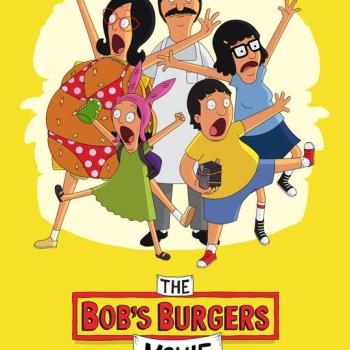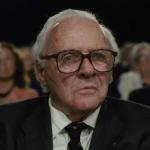Review of Into the Wild, Directed by Sean Penn
Christopher McCandless wandered into the Alaskan wilderness in the spring of 1992 to live off the land, commune with nature, and find himself. One hundred and thirteen days later he was dead of starvation. His true story was told in Outside magazine (here) and The New Yorker in 1993, a book titled Into the Wild in 1996, and film of the same name in 2007.

McCandless was well-read, idealistic, and and spiritually sensitive. Some people see him as a visionary and a hero: they make pilgrimages out to his campsite in Alaska (an abandoned bus just outside Denali National Park) where he lived and died to honor his memory and his pursuit of a purer kind of life. Others view him as a confused young man who failed to bring a compass, consult a map, or learn wilderness skills before he went camping.
The movie version sides with the former crowd. In this telling, McCandless leaves home to escape his parents and their lifestyle. He wisely rejects their upper-middle-class materialism, their business-like marriage, and their deceitfulness. He is especially wounded when he learns that his parents are not legally married, that his dad had a prior marriage and several other children whom he simply abandoned. McCandless no longer feels safe in the identity he has simply assumed in his early years. He treks off to find a new one, renaming himself “Alexander Supertramp.”
The movie cuts between McCandless two-year roadtrip–during which he meets hippies, kayaks, hitchhikes, train-hops, works as a farmer and a fast-food worker–and his time in Alaska, meant to be his final adventure before returning to civilization. McCandless is kind, inquisitive, resourceful, athletic, and quirky, a sort of Robinson Crusoe crossed with Huckleberry Finn.
McCandless is also callous and insensitive towards his family, a point the film makes by cutting back to his parents and his sister during his two year absence. McCandless casually severs all ties with them. He does not call or write, even against the advice of some of his new-found hippie mentors. His parents agonize in their uncertainty; his sister starts off more empathetic but gradually feels the abandonment and loss.
McCandless is more than a little selfish, which casts doubt on the integrity of his spiritual quest. In McCandless’ theology, enlightenment and happiness are found in solitude, without commitments, and require only passing kindness to strangers. McCandless does not simply leave behind the family he was born with; he leaves behind everyone he meets in the course of his journeys. He leaves his hippie friends, rejects the love of a young woman, and turns down an old man’s request to adopt him. The most consistent thing about McCandless’ quest is his prioritization of himself and his wilderness journey above his relationship with other people and above their feelings. McCandless is narcissistic to the core.
But I can’t just damn his theology and move on because, frankly, I kind of envy him. McCandless is right that there is something wrong with society. A scene in which he and another character are drunkenly complaining about how sick society is is pretty funny for how inarticulate they are, but poignant because they are, basically, correct. Civilization is built on sin, and sometimes you just want to leave it all behind.
And McCandless is right that there is something that feels like unspoilt goodness in the outdoors, and that it gives us access to real truths. Genesis 1 tells us that God’s creation is “very good,” Psalm 19 that all creation sings God’s praises, and Romans 1 that nature reveals some of God’s attributes. That is why, for some folks (including me), time spent in the outdoors is rejuvenating. When I arrive at a trailhead and see a path leading away into wilderness, I see an invitation to adventure, I feel the pull of the unknown waiting to be discovered. Walking, climbing, hiking hour after hour in solitude surrounded by natural beauty is good. There are few experiences like it. Fifteen years ago I wrote a list of things I wanted to do before I die, and I included “living alone in the woods for 40 days.” In 15 years I’ve never spent more than 2 days outdoors. I envy McCandless because he actually tried.
So I can’t quite join the camp of those who dismiss McCandless as a confused weirdo. I think his spiritual searching was admirable and his sense of being drawn to nature reflected a true appreciation for what nature could teach him. But I part ways with McCandless because he was, essentially, a pagan or a pantheist. For him, the goodness of nature was the whole story, which is why he felt confident enough to wander into its bosom with little preparation or safeguards. But nature is not unspoilt goodness, though it can feel that way. Nature itself is corrupted by our sinfulness: if Romans 1 tells us that nature reflects spiritual truths, Romans 8 reminds us that sin is one of those truths (it was “subjected to futility” and “in bondage to corruption,” v. 20-1). McCandless was naive in his nature-worship. Nature is “red in tooth and claw.” The law of nature is the law of the jungle. And McCandless misunderstood the distinctive role of humans in the natural order. He seemed to want to mingle in with it all as an equal, but we are called to be stewards, to assume leadership over and responsibility for creation. McCandless wanted all the fun but little of the responsibility.
I wish I knew him. I’d like to have gone hiking together. I like to think that if we had a chance to talk, we would have shared our mutual love of the outdoors, and I could have shared about the God of nature whom McCandless seems to have been groping in the dark for. The film tries to give McCandless a happy ending by giving him a spiritual breakthrough in his final moments before death–but McCandless’ story is ultimately a sad one, of a lost soul that stayed lost.
[Into the Wild is rated R because McCandless cusses and briefly meets nudist hippies].












